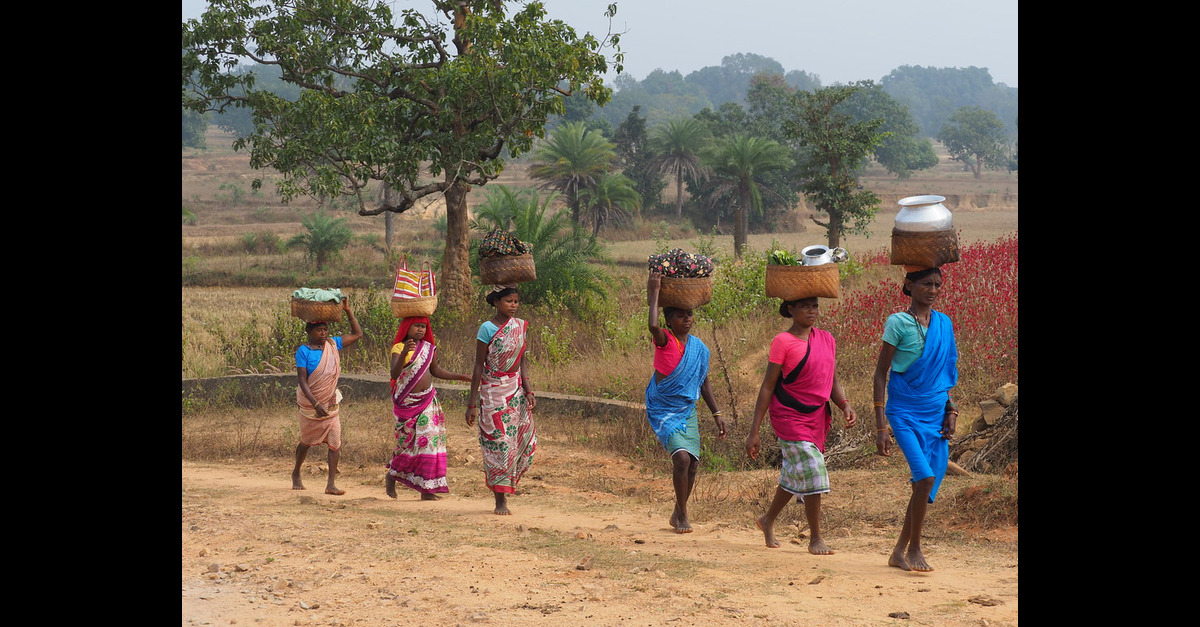Case Details
- Case Name: Tirith Kumar & Ors. Vs Daduram & Ors.
- Date of Judgment: December 19, 2024
- Court: Supreme Court of India
- Quorum: Hon’ble Justice CT Ravikumar and Hon’ble Justice Sanjay Karol
A Supreme Court appeal challenging the decision of the Chhattisgarh High Court on property rights of tribal women from the ‘Sawara Tribe’.
Facts of the Case
The case concerns the inheritance rights of tribal women belonging to the ‘Sawara Tribe’, a notified scheduled tribe under Article 342 of the Constitution. The respondents claimed property rights, which were granted by the Chhattisgarh High Court. The case began from a dispute when the father of the respondent had passed away before 1956 which lead to questions about their inheritance rights under the applicable laws.
Issues
The major legal issues raised in the case included:
- Whether tribal women can be granted property rights based on principles of justice, equity and good conscience despite the Hindu Succession Act not applicable to Scheduled Tribes
- The applicability of the Central Provinces Laws Act 1875 in matters of tribal succession
- The extent of the authority of Court to apply equitable principles in cases involving tribal succession laws
Statutes and Legal Provisions
The judgment examined several key legal provisions:
- Article 342 of the Constitution of India
- Hindu Succession Act, 1956
- Central Provinces Laws Act, 1875 (particularly Section 6)
- Principles of justice, equity and good conscience
Arguments of the Petitioner
The appellant’s primary contention was that the respondents had no inheritance rights since their father died before 1956, predating the Hindu Succession Act. They challenged the decision of the High Court to grant property rights to the tribal women and argued that the Hindu Succession Act explicitly does not apply to members of Scheduled Tribes.
Arguments of the Respondent
The respondents defended the decision of the High Court by supporting the application of principles of justice, equity and good conscience as given under the Central Provinces Laws Act 1875. They brought up the need for fair treatment and equal rights for female tribal members in succession.
Legal Analysis
The Supreme Court analysed the case by various precedents and legal principles that govern tribal succession rights. The Court specifically looked into the dissenting opinion in Madhu Kishwar & Ors. Vs State of Bihar focused on the application of general principles of succession laws to tribal women. After a thorough analysis of the connection between traditional tribal customs and constitutional principles of equality and the Court recognised the need for a balance that protects both cultural heritage and fundamental rights.
the Court went through the Central Provinces Laws Act 1875 Section 6 which provides for the application of principles of justice, equity and good conscience. This provision was crucial where traditional tribal laws might not address modern concerns of equality and justice. The Court mentioned that even though the Hindu Succession Act may not be directly applicable to Scheduled Tribes, its general principles could be effectively applied to ensure justice, equity and good conscience.
The Court also devoted considerable attention to the need for legislative intervention in this area. from recent judgments such as Kamla Neti v. LAO (2023), the Court mentioned the necessity for a legal framework that would address the succession rights of tribal women while respecting tribal autonomy and customs.
Judgment
The Supreme Court delivered a decisive judgment affirming the Chhattisgarh High Court’s decision and dismissing the appeal.the Court endorsed the application of principles of justice, equity and good conscience in matters of tribal succession and found no error in the reliance of the High Court on the Central Provinces Laws Act 1875. The judgment also cleared that despite the non-applicability of the Hindu Succession Act to Scheduled Tribes courts could adopt equitable principles to promote fairness, especially in cases of female descendants.
The judgment went beyond mere deciding the case because it included a call to action directed to the Parliament. The bench urged legislative authorities to make necessary amendments to the Hindu Succession Act to secure female tribals’ survivorship rights. This shows the recognition of the Court of its role in dispensing justice in individual cases and in highlighting broader issues which require legislative attention.
Summary
This judgment showcases the solution of the judiciary to protect tribal women’s property rights while respecting tribal customs. The Court balanced traditional laws with constitutional principles of equality mentioning that gaps in tribal succession laws can be filled using principles of justice, equity and good conscience. The judgment also ordered an urgent need for legislative reform to secure the right of survivorship for female tribals.
PRIME LEGAL is a full-service law firm that has won a National Award and has more than 20 years of experience in an array of sectors and practice areas. Prime legal falls into the category of best law firm, best lawyer, best family lawyer, best divorce lawyer, best divorce law firm, best criminal lawyer, best criminal law firm, best consumer lawyer, best civil lawyer.
WRITTEN BY HRIDYA S KUMAR


